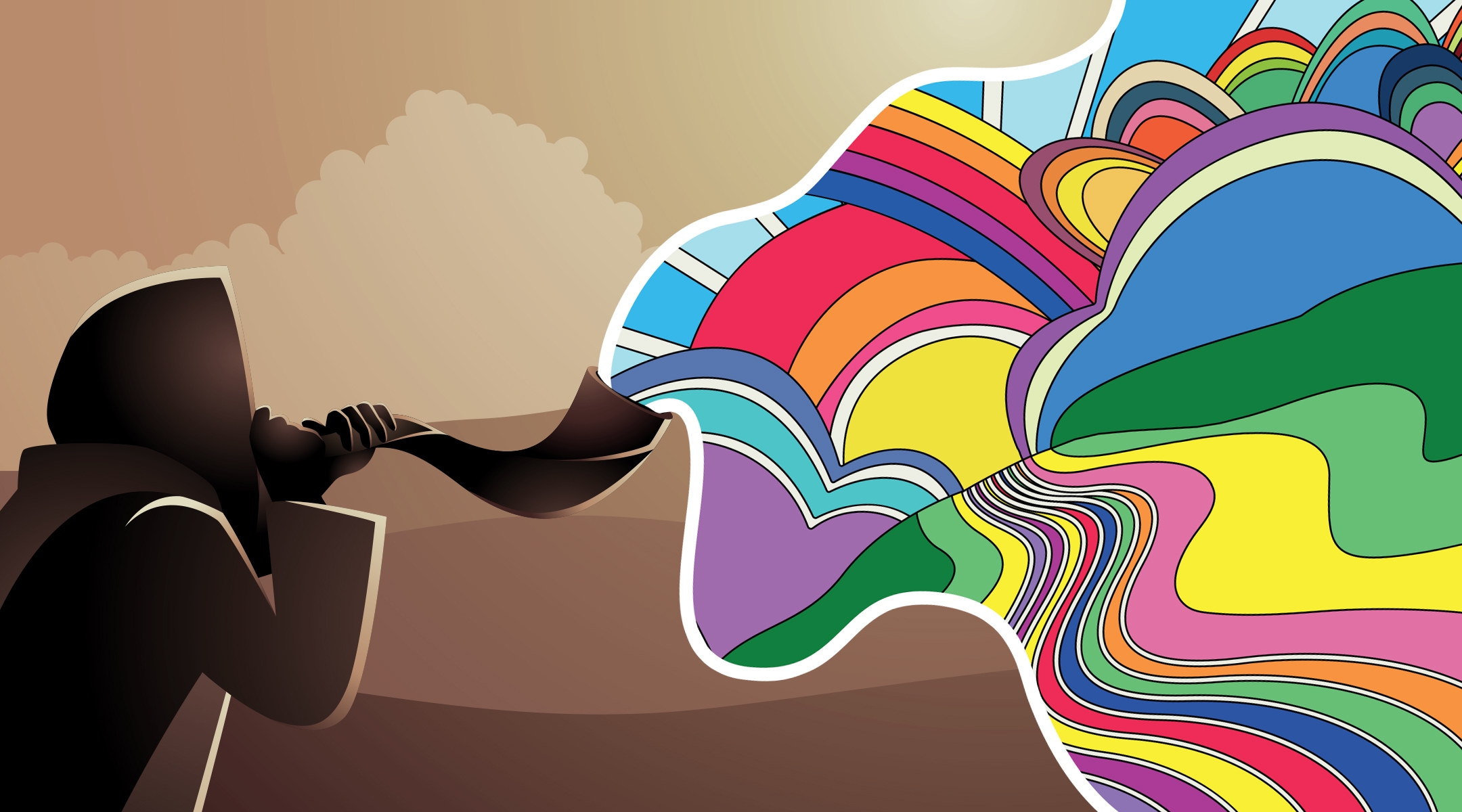(JTA) — “We are immigrating to America.” It was 1989, and my parents had sat my sister and me down in our living room to break the news. In those years of economic and political instability, as well as the ethical injustice of apartheid, many Jewish South Africans had an exit plan. Our time had finally come, and I was devastated. I sobbed big ugly tears.
In my mind, I was leaving more than the comfort of my family and friends. I was leaving the only way of life that I understood. South Africans as a group are traditionally Orthodox but not necessarily observant; Shabbat dinners followed by TV was how I grew up. Immigrating to a vast new world made me petrified that I would lose my Jewish identity.
When I arrived in Florida, I got involved with a local theater group for teens. But as much as I loved performing, I became a drama dropout, in the name of Shabbat. I traded rehearsals for the sound of the chazan singing “L’cha Dodi.” I️ chose tasting challah and grape juice with my family over eating McDonald’s French fries with fellow thespians. Eager to remain rooted in a world that was familiar, observing Shabbat became my way to recreate home.
I think about this change every year at Rosh Hashanah, an opportunity to begin our lives anew. Our hearts are open, our books are open, the shofar cries out and we cry out with it. We reckon with ourselves and we reckon with God. Every year, the High Holy Days call upon us to pause, reflect and consider what changes we need to make to bring more justice to ourselves and the world around us. What part of our past must remain unchanged, and what do we have the power to change for the better? Yehuda Amichai, in his poem “My Parents’ Motel,” captures this very dichotomy as he describes his father’s dying words. After recalling his father’s softer and gentler version of the Ten Commandments, he says:
I want to add two to the Ten Commandments:
The eleventh commandment, “You will not change,”
and the twelfth commandment, “Change, you will change.”
Amichai’s two invented commandments have guided me from my earliest days, constantly exploring how to hold onto change without changing too much, and how to balance tradition with modernity in a world that does not always value religion. For me, that liminal space between changing and not changing — and the desired pace at which change can or should occur — remains a constant undercurrent in my life and leadership.
In 2010, many people objected to Rabbi Avi Weiss for ordaining me as the first female Orthodox rabbi. The sudden media attention brought on an onslaught of criticism. Orthodox change is seen as an oxymoron at its worst and decidedly slow at best. My ordination and my taking the title “rabba” (the feminine form of “rabbi”) several months later was seen as too much too fast. This move, I was told, would destroy the Orthodox community.
The two rabbis who railed against me published an article called “Orthodox Women Rabbis?” and used a metaphor of orthodontics in expressing his views. Change, they said, quoting one of their teachers, must happen slowly, like the process of braces that methodically and slowly straighten teeth over time. Too much pressure, they accused, would cause the teeth to break.
It’s not that I don’t believe in patience. My patience has helped me slowly traverse many obstacles. Some of my colleagues, understandably, have accused me of being too patient! The metaphor I like for patience and the process of change is not orthodontics, but rather exercise. My trainer, with whom I have been working religiously, once a week every Monday afternoon, introduced me to the phrase “time under tension.” When you hold one position, be it a squat, plank or bicep curl, for a long period of time, it is called time under tension. Whenever I hear this phrase, usually while sweating, I always think about the process of change. I may be gasping for breath (and in pain), but I can’t help but imagine my muscles first being called to wake up, and then slowly, with lots of effort and energy (and did I mention some pain?) eventually changing, becoming better and stronger.
When we put in the work, with a healthy dose of righteous anger, change becomes inevitable. Yet many people, like the orthodontics rabbis, have a visceral fear of change and they end up imprisoned by their past, remaining exactly where they are.
When people ask why I continue to invest in women’s leadership in the Orthodox world after I experienced so much resistance and animosity, my answer is this: if we want the Jewish community to grow and thrive, we cannot ignore the wisdom, insights, moral courage and spiritual rigor that women contribute. Our community has always benefited from many voices, scholars and genders. When women are undermined in Orthodox communities — where we truly and deeply belong — everyone misses out.
We are often stuck behind the walls we create for ourselves.
We have to know when to forge ahead and when to have the patience to wait. We have to know what to shift, what to transform and what to keep intact. We have to know which external fears inhibit our ability to change and what personal cages we erect for ourselves. I have come to realize that although the process of becoming ordained was slow and methodical for me, it opened up a pathway for hundreds of other women to actualize their dream of being halakhic and spiritual leaders. The accusations of “too fast” were just a front for some people’s resistance and discomfort to change.
Rosh Hashanah is the opportunity to ask ourselves, “Which changes are we seeking? What gets in the way of evolving in the ways we want?” Perhaps the shofar sounds are emblematic of the tensions, paces, and anxieties of change. On one hand, the fast, quick t’ruah — the tu-tu-tu-tu-tu — is like an alarm that awakens the soul to act. The slower drawn out sounds of the shevarim — tu, tu, tu — remind us of what should not change too fast, and of the deliberative slowness that sustains everlasting change.
Unlike my experience as an immigrant and as a rabbi, changes don’t always involve physically crossing an ocean or becoming more religious. But everyone has the capacity to traverse gulfs in their own lives — personally, communally and spiritually. We must embrace moments when we are called to change and when we are called to not change. We have to know when to hold onto the eleventh commandment, “You will not change,” and when to employ the twelfth commandment, “Change, you will change.”
May this year, 5784, bring deep cathartic awakenings, quick and necessary resolutions, and also the patience and fortitude to slowly and gradually relax ourselves into changes that can be everlasting.
JTA has documented Jewish history in real-time for over a century. Keep our journalism strong by joining us in supporting independent, award-winning reporting.







